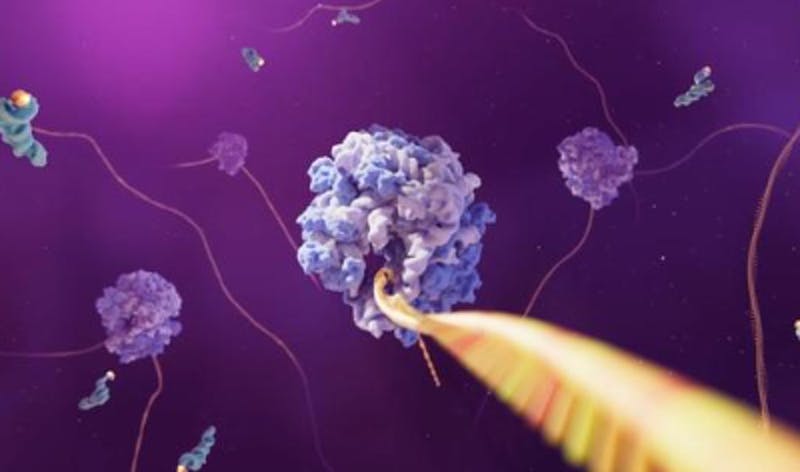Stay plugged into Penn with this daily newsletter rounding up all of the top headlines from top headlines from the DP, 34th Street, and Under the Button. Free.
34th Street Magazine’s “Toast” to dear old Penn is a Sunday morning newsletter with the latest on Penn’s campus culture and arts scene. Free.
“Penn, Unbuttoned” is Penn’s only intentionally satirical newsletter, giving you your weekly dose of comedy from Under the Button. Free.
The week’s top stories from the DP and beyond, meticulously curated for parents and alumni, and delivered into your inbox every Sunday morning. $
Quaker Nation is the Daily Pennsylvanian’s weekly sports newsletter that keeps you up-to-date on all things Penn sports. Get it in your inbox every Tuesday. Free.
Recruiter’s Row is the Daily Pennsylvanian’s biweekly recruitment newsletter that keeps you up-to-date on all things employment related. Get it in your inbox every other Wednesday. Free.
Subscribe to get the week’s top stories from The DP and beyond, meticulously curated for parents and alumni, delivered directly to your inbox.
I’ve already signed up
The Daily Pennsylvanian is a student-run nonprofit.
Please support us by disabling your ad blocker on our site.
Penn has created its own NFT — non-fungible token — honoring Penn Medicine’s mRNA research, which helped create the COVID-19 vaccines.
The NFT, officially called The University of Pennsylvania mRNA NFT: Vaccines for a New Era, is the first NFT created by Penn. NFTs are digital assets in the form of an image, video, audio, or text that use blockchain technology to ensure that the asset can not be duplicated.
function myAdDoneFunction(spotx_ad_found) { if(spotx_ad_found) {} else {}};
function mobileAndTabletcheck() {
var check = false;
(function(a){if(/(android|bbd+|meego).+mobile|avantgo|bada/|blackberry|blazer|compal|elaine|fennec|hiptop|iemobile|ip(hone|od)|iris|kindle|lge |maemo|midp|mmp|mobile.+firefox|netfront|opera m(ob|in)i|palm( os)?|phone|p(ixi|re)/|plucker|pocket|psp|series(4|6)0|symbian|treo|up.(browser|link)|vodafone|wap|windows ce|xda|xiino|android|ipad|playbook|silk/i.test(a)||/1207|6310|6590|3gso|4thp|50[1 6]i|770s|802s|a wa|abac|ac(er|oo|s )|ai(ko|rn)|al(av|ca|co)|amoi|an(ex|ny|yw)|aptu|ar(ch|go)|as(te|us)|attw|au(di| m|r |s )|avan|be(ck|ll|nq)|bi(lb|rd)|bl(ac|az)|br(e|v)w|bumb|bw (n|u)|c55/|capi|ccwa|cdm |cell|chtm|cldc|cmd |co(mp|nd)|craw|da(it|ll|ng)|dbte|dc s|devi|dica|dmob|do(c|p)o|ds(12| d)|el(49|ai)|em(l2|ul)|er(ic|k0)|esl8|ez([4 7]0|os|wa|ze)|fetc|fly( |_)|g1 u|g560|gene|gf 5|g mo|go(.w|od)|gr(ad|un)|haie|hcit|hd (m|p|t)|hei |hi(pt|ta)|hp( i|ip)|hs c|ht(c( | |_|a|g|p|s|t)|tp)|hu(aw|tc)|i (20|go|ma)|i230|iac( | |/)|ibro|idea|ig01|ikom|im1k|inno|ipaq|iris|ja(t|v)a|jbro|jemu|jigs|kddi|keji|kgt( |/)|klon|kpt |kwc |kyo(c|k)|le(no|xi)|lg( g|/(k|l|u)|50|54| [a w])|libw|lynx|m1 w|m3ga|m50/|ma(te|ui|xo)|mc(01|21|ca)|m cr|me(rc|ri)|mi(o8|oa|ts)|mmef|mo(01|02|bi|de|do|t( | |o|v)|zz)|mt(50|p1|v )|mwbp|mywa|n10[0 2]|n20[2 3]|n30(0|2)|n50(0|2|5)|n7(0(0|1)|10)|ne((c|m) |on|tf|wf|wg|wt)|nok(6|i)|nzph|o2im|op(ti|wv)|oran|owg1|p800|pan(a|d|t)|pdxg|pg(13| ([1 8]|c))|phil|pire|pl(ay|uc)|pn 2|po(ck|rt|se)|prox|psio|pt g|qa a|qc(07|12|21|32|60| [2 7]|i )|qtek|r380|r600|raks|rim9|ro(ve|zo)|s55/|sa(ge|ma|mm|ms|ny|va)|sc(01|h |oo|p )|sdk/|se(c( |0|1)|47|mc|nd|ri)|sgh |shar|sie( |m)|sk 0|sl(45|id)|sm(al|ar|b3|it|t5)|so(ft|ny)|sp(01|h |v |v )|sy(01|mb)|t2(18|50)|t6(00|10|18)|ta(gt|lk)|tcl |tdg |tel(i|m)|tim |t mo|to(pl|sh)|ts(70|m |m3|m5)|tx 9|up(.b|g1|si)|utst|v400|v750|veri|vi(rg|te)|vk(40|5[0 3]| v)|vm40|voda|vulc|vx(52|53|60|61|70|80|81|83|85|98)|w3c( | )|webc|whit|wi(g |nc|nw)|wmlb|wonu|x700|yas |your|zeto|zte /i.test(a.substr(0,4)))check = true})(navigator.userAgent||navigator.vendor||window.opera);
return check;
}
var bMobile = mobileAndTabletcheck(),
aScriptAttributes = [
‘type=”text/javascript” src=”https://js.spotx.tv/easi/v1/85394.js” data-spotx_ad_done_function=”myAdDoneFunction” data-spotx_ad_unit=”incontent” data-spotx_autoplay=”1″ data-spotx_ad_volume=”0″ data-spotx_loop=”0″ data-spotx_collapse=”1″ data-spotx_unmute_on_mouse=”1″‘
];
if (bMobile)
{
aScriptAttributes.push(‘data-spotx_content_width=”300″‘);
aScriptAttributes.push(‘data-spotx_content_height=”250″‘);
aScriptAttributes.push(‘data-spotx_channel_id=”186667″‘);
}
else
{
aScriptAttributes.push(‘data-spotx_content_width=”608″‘);
aScriptAttributes.push(‘data-spotx_content_height=”342″‘);
aScriptAttributes.push(‘data-spotx_unmute_on_mouse=”1″‘);
aScriptAttributes.push(‘data-spotx_channel_id=”186773″‘);
}
document.write(”);
Penn’s NFT is a one-minute long 3D animation of the modified mRNA technology that protects someone’s immune system from COVID-19. Penn’s mRNA patent documents and a letter detailing new uses of the mRNA technology are also contained in the NFT.
The digital artifact will be auctioned by the British auction house Christie’s from July 15 to July 25. Proceeds will support ongoing research across the University, according to a Penn Med press release.
RELATED:
Penn Engineering researchers modify patients’ antibodies to attack cancer tumors
Penn researchers receive royalties of $750 million for breakthrough vaccine development
The digital artifact showcases Penn Med researchers Drew Weissman and Katalin Karikó‘s work on increasing the therapeutic potential of mRNA by enabling modified mRNA to enter target cells efficiently and instructing them to produce antigens or other proteins that fight diseases, Penn Med reported.
Senior Executive Vice President of Penn Craig Carnaroli explained the significance of the mRNA research found in the NFT.
Christie’s New York Vice President Peter Klarnet believes the NFT is an asset that merits a high price tag.
“[Christie’s] strongly believe that [the auction] will bring from low to mid six figures, and possibly into the seven figures considering that the funds will be going to support the mission of Penn Medicine and the work of Drew Weissman [and Katalin Karikó],” Klarnet told Reuters.
Weissman and Karikó have been praised for their contributions to the COVID-19 vaccine, including covering Time’s 2021 Heroes of the Year edition, and Weissman still hopes that their research will become a resource to stop the spread of other infectious diseases.
“Although the investigations that we began over two decades ago have culminated in significant discoveries and a vaccine against a pandemic-causing virus, the work continues,” Weissman said to the Lasker foundation. “I’m thrilled to say that my lab is pursuing new mRNA vaccines to guard against a host of infectious diseases, like influenza and HIV.”
More Like This
getJSON(`https://recommender.thedp.com/recommend?slug=${window.location.href.split(‘article/’)[1].split(‘?’)[0]}`, (json, textStatus) => {
if (json) {
const results = json[‘results’]
results.map((rec) => {
document.getElementById(‘recommended-articles’).innerHTML += `
`
});
document.getElementById(‘recommended-articles’).innerHTML += `
`
}
});
Follow The Daily Pennsylvanian
Have top stories from The Daily Pennsylvanian delivered to your inbox every day, Monday through Friday, when Penn classes are in session.


